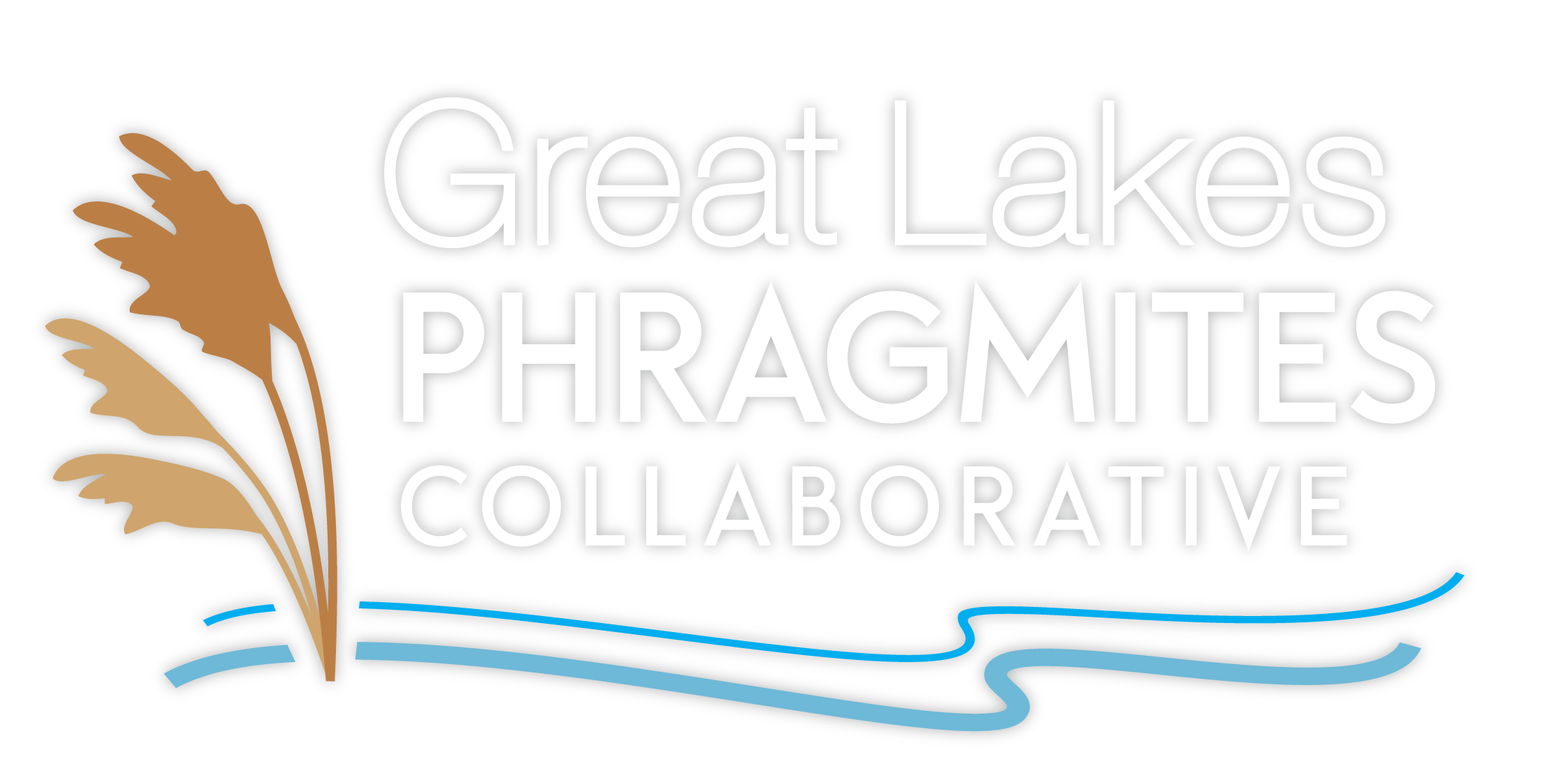Leslie Newman of Wetland Watch, shares information about the Ottawa County Invasive Phragmites Control Group. This working group includes Wetland Watch, Ottawa County Parks, Michigan Department of Natural Resources, Ottawa and Muskegon County Conservation Districts, Grand Valley State University, the Nature Conservancy, local municipal leaders and Lake Boards, private property owners, and licensed contractors.
Why is Phragmites an issue in your area?
Invasive Phragmites has taken hold on the islands and river banks on the lower Grand River. It is of concern because it doesn’t support wildlife, dries up wetland areas, precludes wetland diversity, lowers property values, impedes dredging efforts and presents a fire hazard. Invasive Phragmites stands impede normal wetland functions such as pollution filtration and flood mitigation.
What is your organization’s approach to invasive Phragmites management?
Initial work was done on Harbor Island with a grant to Wetland Watch from the Grand Haven Area Community Foundation Greatest Needs Fund (2010-2013). Forty acres were treated. In 2011 the Ottawa County Invasive Phragmites Control Group (OCIPCG) was formed. Educational programs encouraged local leaders to treat Phragmites around the lake of Spring Lake. Lloyds Bayou was treated with residential contributions. Other small areas were treated with private contributions and Spring Lake Village funds. Four river bayous were treated as part of a grant of The Nature Conservancy. Members of the OCIPCG are in the second stage of the proposal process to treat islands in the lower Grand River, and some river bank areas.
Who are your partners in this effort?
For our current effort, partners are the Lloyds Bayou Lake Board, individual property owners, and Spring Lake Township. Members of the OCIPCG, Ottawa County Parks and the Michigan Department of Natural Resources have applied for a federal grant. Carndo JFNew has helped with technical issues and treatment contacts. The Ottawa Conservation district is seeking the capacity to treat small areas. The Muskegon Conservation District has that capacity and has treated small areas.
What are your funding sources?
As stated above, we have received community foundation support and corporate entities that helped match the community fund grant. The Spring Lake Lake Board took the lead in raising money to treat areas around the Lake. We will know in June if the federal proposal is successful. We have received transportation cost waivers from aerial spraying.
What are your goals and objectives for the program?
Our goal is to control invasive Phragmites in Ottawa County. Our focus has been on the lower Grand River, and the Pigeon Creek watershed. Other group, i.e. the Macatawa Greenway Outdoor Discovery Center has done work in southern Ottawa County. We intend to continue to educate the public about why they should be concerned, and why they should support control programs. We hope to treat major stands of Phragmites so that in the future, and with monitoring we can treat new growth as it appears, and achieve the restoration of diverse wetland flora and fauna.
What type of land does your program target?
Both public and private lands have been treated and will be treated.
What is the status of the program and are you seeing results?
The Harbor Island treatment is very successful. The treatment process was reported on in the Grand Haven Tribune. Visitors notice the change. In other areas, owners of waterfront property are alerted to the issue and are pleased to have views and property values restored.
Can you share important lessons learned both about what worked and what did not work?
Persistence, leadership and partnership. Wetland Watch, a small volunteer non-profit, wrote the initial grant. The City of Grand Haven brought other groups to the table including the Department of Natural Resources, the Nature Conservancy, the West Michigan Land Conservancy, Ottawa County Parks, other municipal leaders in what has become the Ottawa County Invasive Phragmites Control Group. Wetland Watch continues to be involved in the OCIPCG, We have learned not to depend too heavily on grants, but do the legwork needed to get the community involved and the work done.

For more information explore the Wetland Watch Website or contact
Leslie Newman
Wetland Watch
111 W. Ann St.
Spring Lake, MI
49456-2003
leslienewman@charter.net
616-844-3066
